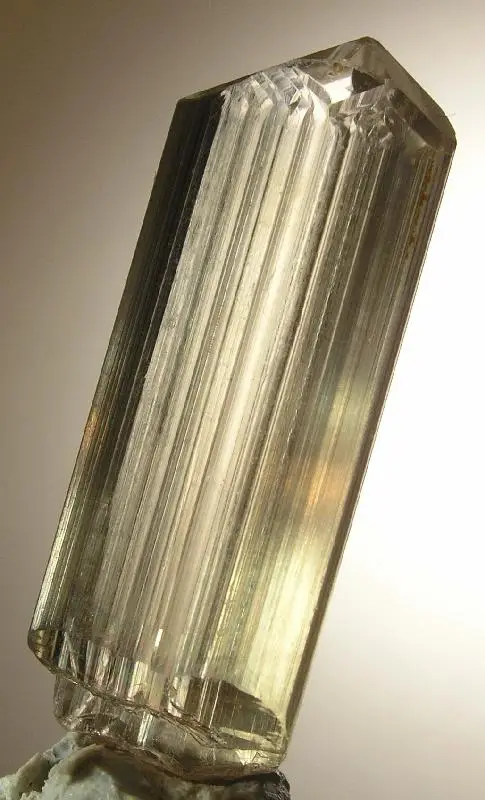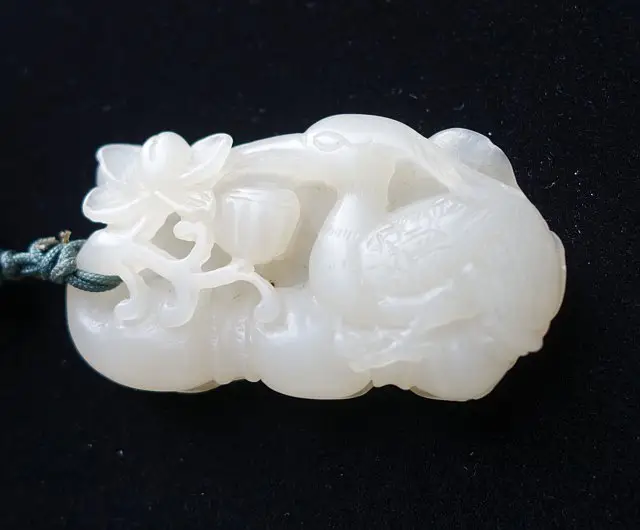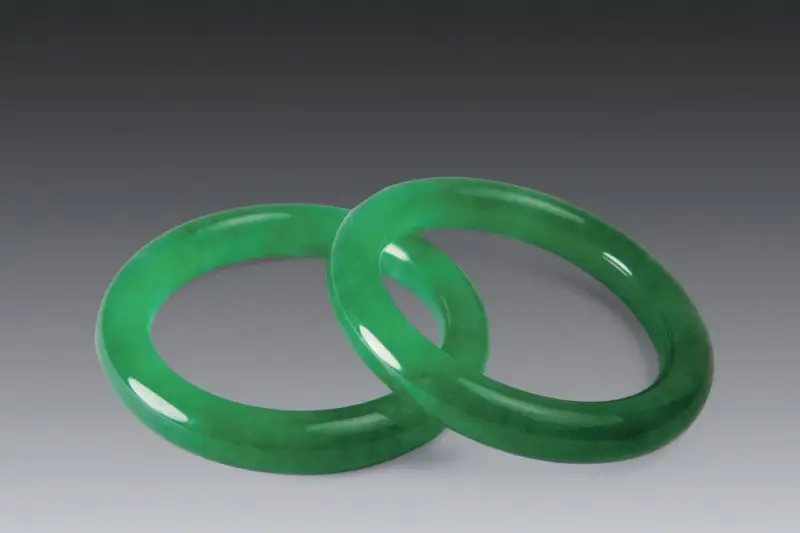Introduction
Diaspore, also known as hard water aluminum stone, derives its name from the Greek word meaning “to scatter,” because it tends to explode and scatter when heated.
This hydrated aluminum oxide mineral belongs to the orthorhombic crystal system and is isomorphous with goethite. Its crystals are typically flat, and its aggregates are sheet-like or scaly clusters with well-developed cleavage and a pearly luster on the fracture surfaces. Diaspore is usually colorless, gray, or pale yellow, with rare occurrences of purple.

(Figure 1) 1
Diaspore
- Crystal system: orthorhombic crystal system
- Hardness: 5~6
- Specific gravity: 3.2~3.3
- Luster: Vitreous luster
- Transparency: Transparent to opaque
- Color: White, brown, colorless, light yellow, gray, green, lavender, pink
- Index of refraction: 1.66~1.72
- Birefringence: 0.026~0.029
- Fluorescence: Multiple variations
- Cleavage: Complete columnar cleavage
- Characteristics: Well-developed cleavage and easy to wear
- Imitation: glass, synthetic spinel
Commercial Value of Diaspore
Ornamental
The most prized variety is the color-changing diaspore, found in Turkey, commercially referred to as Zultanite. This gem can exhibit a color-changing effect comparable to alexandrite, shifting between green, pink, yellow, and purple. Large, high-quality color-changing diaspore specimens are extremely rare and highly valuable.
Color Change: Diaspore exhibits a fascinating color change when exposed to different light sources, such as natural light, incandescent light, or fluorescent light. The gem can shift from green to pink, and even yellow or purple. This captivating phenomenon is caused by the interaction of light with the gem’s crystal lattice structure.
Industrially
Diaspore is commonly found in bauxite, laterite, and some rocks, and is used as a refractory material or as a source of aluminum extraction.
Diaspore is a hard gemstone, resistant to scratches, but its cleavage makes it susceptible to breaking, so it should be protected from impacts and exposure to harsh chemicals like household cleaners or perfumes, which can damage the stone.
Follow Honway to learn more about the characteristics of gemstones~
Photo Credit:


